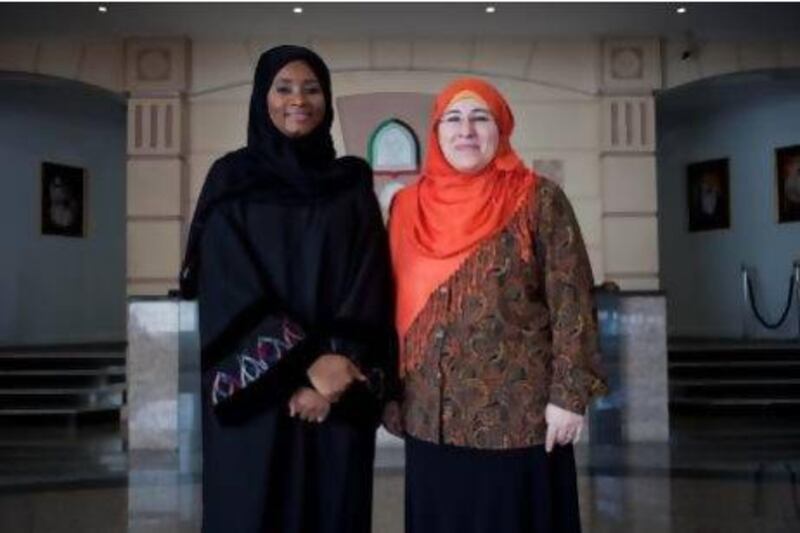SHARJAH // Behind most successful Emirati students is a supportive family, a new study has found.
Researchers at Sharjah’s Higher Colleges of Technology questioned more than a thousand students, and found that about two thirds said they relied on family support. Ninety per cent attributed their academic success to family support.
“In ... trying to understand why students underperform, we need to understand the student as a whole – their background, home life – and see if there are factors that lead to the students having better performance than others,” said Dr Georgia Daleure, the lead researcher. “Students with active families perform better.”
They looked at how much the students interacted with their families, their parents’ educational background and family characteristics.
A 65-question survey was posted on the college website, and teachers were asked to give students time to complete it. The team hoped for 800 responses, but actually received 1,173.
Next, led by the Emirati associate director of the Sharjah Women’s College, Tarifa Ajaif, the researchers interviewed 30 of the students’ parents and guardians.
Ms Ajaif said it was important to have Emiratis doing this, not just because of the language but because they needed families to trust that what they said would be confidential.
“We wanted to know what kind of family involvement Emirati families exhibited at college level and if that varied as the student’s achievement varied,” said Dr Daleure. “We wanted to see if a family think once a child is at college they don’t need that involvement and if this varied from males to females.”
The team found families were very supportive of their children getting a college education, particularly in supporting them financially. The only students not supported financially were the working men.
Most parents left their children to get on with their work uninvolved unless there was a problem.
Parents with less education generally restricted their intervention to checking that homework had been done, and disciplining their children – by restricting television, for example – if their marks were poor.
“The parents with higher education levels were more involved with academic work,” added Dr Daleure. However, she said even those parents were often unfamiliar with college grading systems, being more used the simple pass/fail systems they had experienced at school.
High-achieving students often had either siblings or other family members of a similar age, with post secondary education. “We figured they were more able to support and counsel the student, even mediating with parents explaining what was needed.”
Dr Daleure now hopes to look at students who do not go on to university. “Those who do come don’t say their parents had been strongly supportive of them coming to college,” she said. “Students were keen to come but the know-how of succeeding when they got here was lacking.
“We need to do a better job or raising awareness of what the work place means and finding jobs, helping students and parents adjust their perception of the work force for example assuming their family will find them a job.”
Half of participants said they expected their family would find them work. “We need to help them find a career which suits their skills and interests.”
Ms Ajaif said the study had spurred the college to provide additional events for parents. “We’ve asked them if they’d be interested in getting extra education to help them become more involved, and most said yes.
“We need to look at how we can involve parents more and look at how we can help students succeed more and better engage them in college life.”
Dr Khaleel Hinkston, one of the college counsellors also on the research team, said there was no doubt parents wanted to be more involved, but they needed be shown how.
“The more they know, the more they can enhance the educational achievements of the students so it’s up to us to provide those avenues.”






